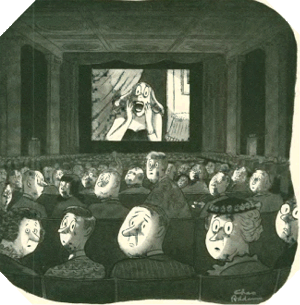 |
| ... carefree at a time when most struggled simply to survive |
Michel de Montaigne was a noted writer of the Renaissance, living from 1533 to 1592, in a France dominated by bloody and miserable civil war. Even then, his inherited wealth shielded him from personal adversity allowing for a largely leisurely private secluded life. He wrote essais (“tries”). They were supposedly not meant as pedantic treatises, but as “sincere” attempts or experiments.
He was privileged, and he wrote extensively because he was carefree at a time when most struggled simply to survive. He wrote about the experience of being lazy, or brave, or indecisive; about lying, about living up to one’s responsibilities (provided one could afford to), about obsessive fears of death or illness, and the way they seem to recede as one’s level of actual misfortune rises. He often described the sheer pleasure of being alive - a sensation he could enhance simply because he was in a position to do so unfettered by practical living matters or concerns.
For some reason, he had quite a following in his time and beyond. The likes of Descartes, Emerson, Nietzsche, Rousseau, and perhaps Shakespeare were supposed to have been influenced. Even more contemporary writers like Isaac Asimov and Simone de Beauvoir had time for him.
Here’s a Montaigne sampler:
> "Obsession is the wellspring of genius and madness."
> "Everyone calls barbarity what he is not accustomed to."
> "If you belittle yourself, you are believed; if you praise yourself, you are disbelieved."
> "When I play with my cat, how do I know that she is not passing time with me rather than I with her? "
> "Life in itself is neither good nor evil, it is the place of good and evil, according to what you make it."
> "The continuous work of our life is to build death."
> "If you press me to say why I loved him, I can say no more than because he was he, and I was I."
> "Kings and philosophers deficate, and so do ladies."
> "I enter into discussion and argument with great freedom and ease, inasmuch as opinion finds me in a bad soil to penetrate and take deep root in. No propositions astonish me, no belief offends me, whatever contrast it offers to my own. There is no fancy so frivolous and so extravagant that it does not seem to me quite suitable to the production of the human mind. "
> "Our religion is made to eradicate vices, instead it encourages them, covers them, and nurtures them."


Proust's "Soul Error" ("erreur d'ame), an important pychological concept he explored in depth, was apparently inspired by this observation of Montaigne:
ReplyDelete"This glory consists of two parts; the one in setting too great a value upon ourselves, and the other in setting too little a value upon others. As to the one, methinks these considerations ought, in the first place, to be of some force; I feel myself importuned by an error of the soul that displeases me, both as it is unjust, and still more as it is troublesome; I attempt to correct it, but I cannot root it out: and this is, that I lessen the just value of things that I possess, and overvalue things, because they are foreign, absent, and none of mine; this humor spreads very far. As the prerogrative of the authority makes husbands look upon their own wives with a vicious disdain, and many fathers their children; so I, between two equal merits should always be swayed against my own; not so much that the jealousy of my advancement and bettering troubles my judgment, and hinders me from satisfying myself, as that of itself possession begets a contempt of what it holds and rules. Foreign governments, manners, and languages, insinuate themselves into my esteem; and I am sensible that Latin allures me by the favor of its dignity to value it above its due, as it does with children, and the common sort of people: the domestic government, house, horse, of my neighbor, though no better than my own, I prize above my own, because they are not mine."